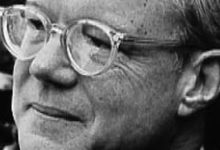“The Beginning and the End” is a comprehensive work authored by the prominent Islamic scholar, Ibn Kathir. Born in 1301 CE in present-day Iraq, Ibn Kathir was a highly esteemed historian, exegete, and scholar of Islamic jurisprudence. His magnum opus, “Al-Bidayah wa’l-Nihayah” (The Beginning and the End), is a monumental historical account that chronicles the history of humanity from its inception to the Day of Judgment, as perceived through the lens of Islamic theology and tradition.
Ibn Kathir’s work is renowned for its meticulous attention to detail, extensive use of primary sources, and adherence to the principles of Islamic scholarship. The book is divided into multiple volumes, each covering distinct periods of history and significant events according to Islamic tradition. It begins with the creation of the universe and the origins of mankind, drawing from Quranic verses, hadith (sayings of the Prophet Muhammad), and historical accounts.
Throughout “The Beginning and the End,” Ibn Kathir delves into various themes, including the lives of prophets and messengers, the rise and fall of civilizations, the spread of Islam, and eschatological events leading up to the Day of Judgment. His narrative style combines scholarly analysis with vivid storytelling, making the complexities of Islamic history accessible to a wide audience.
One of the distinctive features of Ibn Kathir’s work is his inclusion of moral lessons and spiritual insights derived from historical events. He often interprets historical occurrences as manifestations of divine will and providence, emphasizing the importance of faith, righteousness, and adherence to Islamic principles.
“The Beginning and the End” has had a profound influence on Islamic scholarship and remains a cornerstone text in the study of Islamic history and theology. It has been translated into numerous languages and continues to be studied and revered by Muslims worldwide.
In addition to “The Beginning and the End,” Ibn Kathir authored several other significant works, including “Tafsir al-Qur’an al-‘Azim” (The Exegesis of the Great Quran), a renowned commentary on the Quran, and “Al-Sira al-Nabawiyya” (The Life of the Prophet Muhammad), a biography of the Islamic prophet.
Ibn Kathir’s legacy as a scholar and historian endures through his writings, which continue to serve as invaluable resources for understanding Islamic history, theology, and jurisprudence. His contributions have left an indelible mark on the intellectual and spiritual landscape of the Muslim world, earning him a revered status among scholars and practitioners of Islam.
More Informations

Ibn Kathir’s “The Beginning and the End” (Al-Bidayah wa’l-Nihayah) stands as one of the most comprehensive and influential works in Islamic historiography and theology. Its significance lies not only in its detailed documentation of historical events but also in its profound interpretation of these events within the framework of Islamic belief and ethics.
The structure of “The Beginning and the End” reflects Ibn Kathir’s meticulous approach to historical scholarship. The work is divided into multiple volumes, each dedicated to a specific era or theme in human history. Beginning with the creation of the universe and the story of Adam and Eve, Ibn Kathir traces the lineage of prophets and messengers according to Islamic tradition, chronicling their struggles, triumphs, and divine revelations.
Throughout the narrative, Ibn Kathir draws extensively from primary Islamic sources, including the Quran, hadith collections, and the works of earlier scholars. His reliance on these sources ensures the authenticity and reliability of the historical accounts presented in the text. Moreover, Ibn Kathir’s commentary and analysis provide readers with a deeper understanding of the theological significance of each historical event, highlighting its relevance to Islamic doctrine and morality.
One of the key themes explored in “The Beginning and the End” is the concept of divine providence and predestination (qadar) in Islamic theology. Ibn Kathir frequently interprets historical events as manifestations of Allah’s will, illustrating how human actions are intertwined with divine decree. This perspective underscores the importance of faith, humility, and submission to Allah’s plan in the face of adversity and uncertainty.
In addition to recounting historical narratives, “The Beginning and the End” offers valuable moral and spiritual insights derived from the lives of prophets and righteous individuals. Ibn Kathir emphasizes the importance of virtuous conduct, piety, and adherence to Islamic principles as the keys to success in this world and the hereafter. His writings serve not only as a historical record but also as a guide for personal and communal righteousness in accordance with Islamic teachings.
Ibn Kathir’s approach to historiography reflects a synthesis of rigorous scholarship and spiritual wisdom. His narrative style combines scholarly analysis with vivid storytelling, making the complexities of Islamic history accessible to a wide audience. Moreover, his profound understanding of Islamic theology enriches the historical narratives with deeper layers of meaning, inviting readers to contemplate the divine wisdom behind the unfolding of human history.
“The Beginning and the End” has had a lasting impact on Islamic scholarship and religious thought. Its comprehensive coverage of Islamic history, coupled with its theological insights, has made it a standard reference for students, scholars, and practitioners of Islam. Translated into numerous languages, the work continues to inspire and educate readers across the globe, reaffirming Ibn Kathir’s status as one of the most eminent scholars in the Islamic intellectual tradition.
Beyond “The Beginning and the End,” Ibn Kathir’s contributions to Islamic literature are vast and varied. His commentary on the Quran, “Tafsir al-Qur’an al-‘Azim,” is widely respected for its scholarly rigor and exegetical insights. Similarly, his biography of the Prophet Muhammad, “Al-Sira al-Nabawiyya,” provides a detailed account of the life and teachings of Islam’s founder. Together, these works form a rich legacy that continues to shape the discourse on Islam and its historical and theological foundations.

